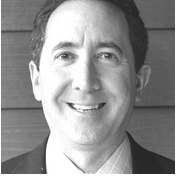What we heard last night was borrow, spend and fair share. With the latter otherwise known as higher taxes. Tha latter is not a surprise as we were told by the Biden side that it was coming but it is still a drag on growth however which way one wants to rationalize it. The borrow part has proven a legacy that lasts forever and the spend is fleeting as it eventually dries up and the government NEVER spends it efficiently (multiplier less than 1.0). What’s amazing about this whole debate is that we are on the cusp of the greatest stimulus plan ever produced, that of the vaccine rollout which in the next month or two, every single person that is 65 and older and with health risks will have gotten completely vaccinated. It means that there will no longer be ANY reason to keep the restaurant/bar/leisure side of the economy closed any longer with restrictions. Add in another month or two of time when the rest of us are vaccinated, that will be a lot of economic stimulus.
The question always is when does all this debt and spend catch up to us and I argue it already is with the weaker US dollar that correlates well with the budget deficit as a percent of GDP. It also could be with the recent rise in long term rates due to the inflationary implications of all the largesse. This will not be a lunch that is free.
After a slew of Fed speak this week, Kashkari speaks today. He and Evans vie for who is the most dovish. I will say this about some of what Powell said yesterday. He said the Fed is not and should not be in the game of credit allocation. This as the Fed owns more than 1/3 of the MBS market and home prices are rising at an 8% annualized rate. That is credit allocation writ large. He also said the US should have a ‘national goal of reducing economic inequality’ at the same time the Fed is the main reason why we have it to the extent we do. They are making it unafforadable for some 1st time buyers who want to own a home, they root for higher inflation which is a tax that hurts those least able to afford it and sorry if you don’t own stocks in your portfolio which is about half the country.
We got an interesting comment from the Governor of the Bank of Korea after leaving interest rates unchanged at .50% as expected. It reminded me of the ‘irrational exuberance’ comment from Alan Greenspan but never something a current Fed official will ever echo because they only think that financial instability emanates from the banks and not the financial markets. “The Bank of Korea is highly concerned that an expansion of investment through excessive leverage could cause losses that could be unbearable for investors should there be any price adjustment due to an unexpected shock.” The Kospi was up 31% in 2020 and after starting the year up 9.6% thru Thursday fell 2% last night in response to the comments.
Notwithstanding the increase in lockdowns starting in November, the UK economy didn’t contract as much as expected m/o/m as it fell 2.6% vs the estimate of down 4.6%. The December number though will probably get worse as the shutdowns increased in scale. Not surprising manufacturing and construction outperformed as it stayed open and services contracted by a less than expected amount. With respect to Brexit, the negotiations still haven’t ended as the discussions shift to services, particularly financial services. The pound is lower even with the better number as the dollar is up across the board. Gilt yields are up and stocks are down. I still think UK stocks are some of the cheapest out there.
 Peter is the Chief Investment Officer at Bleakley Advisory Group and is a CNBC contributor. Each day The Boock Report provides summaries and commentary on the macro data and news that matter, with analysis of what it all means and how it fits together.
Peter is the Chief Investment Officer at Bleakley Advisory Group and is a CNBC contributor. Each day The Boock Report provides summaries and commentary on the macro data and news that matter, with analysis of what it all means and how it fits together.